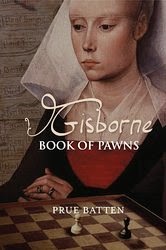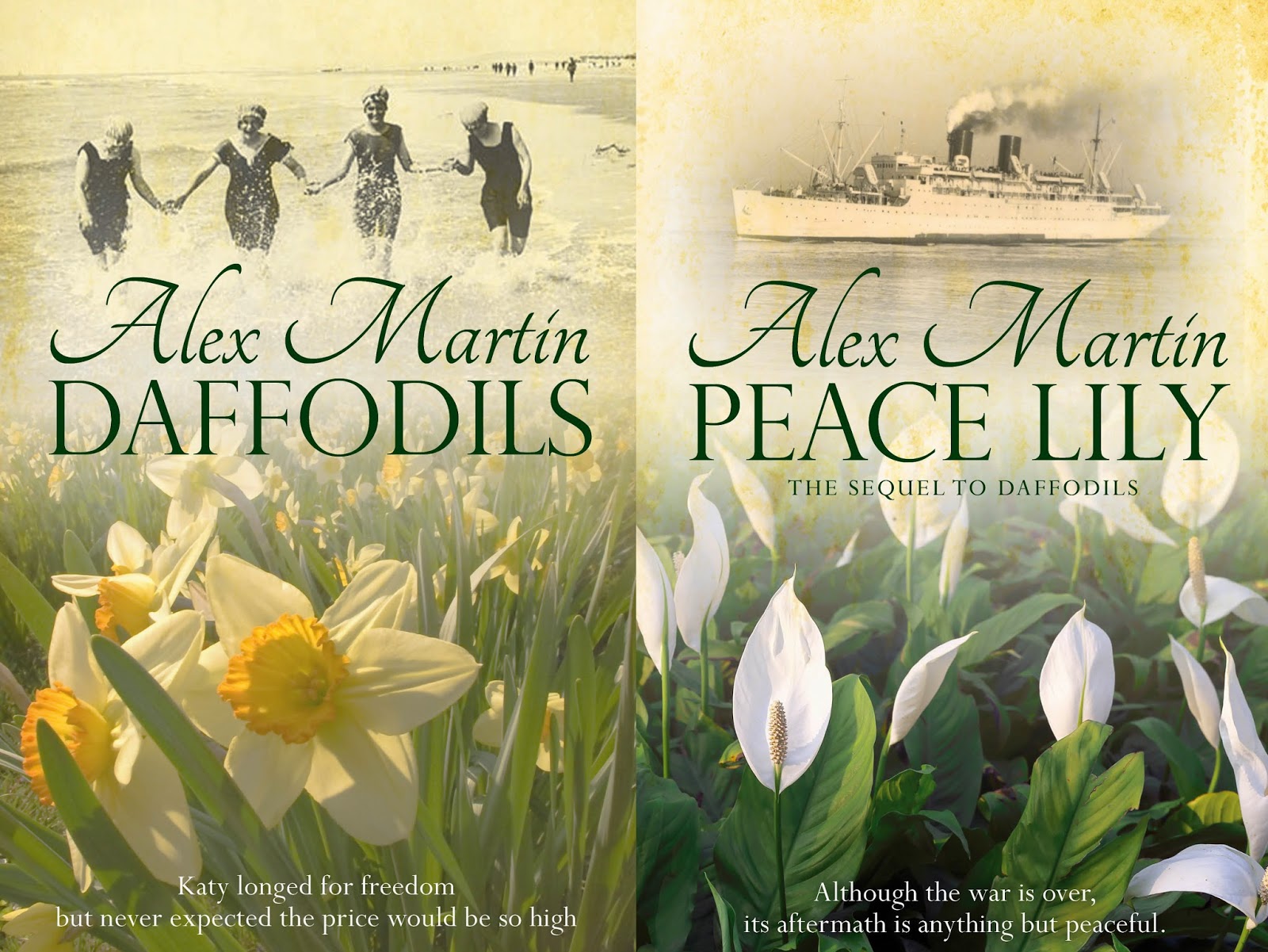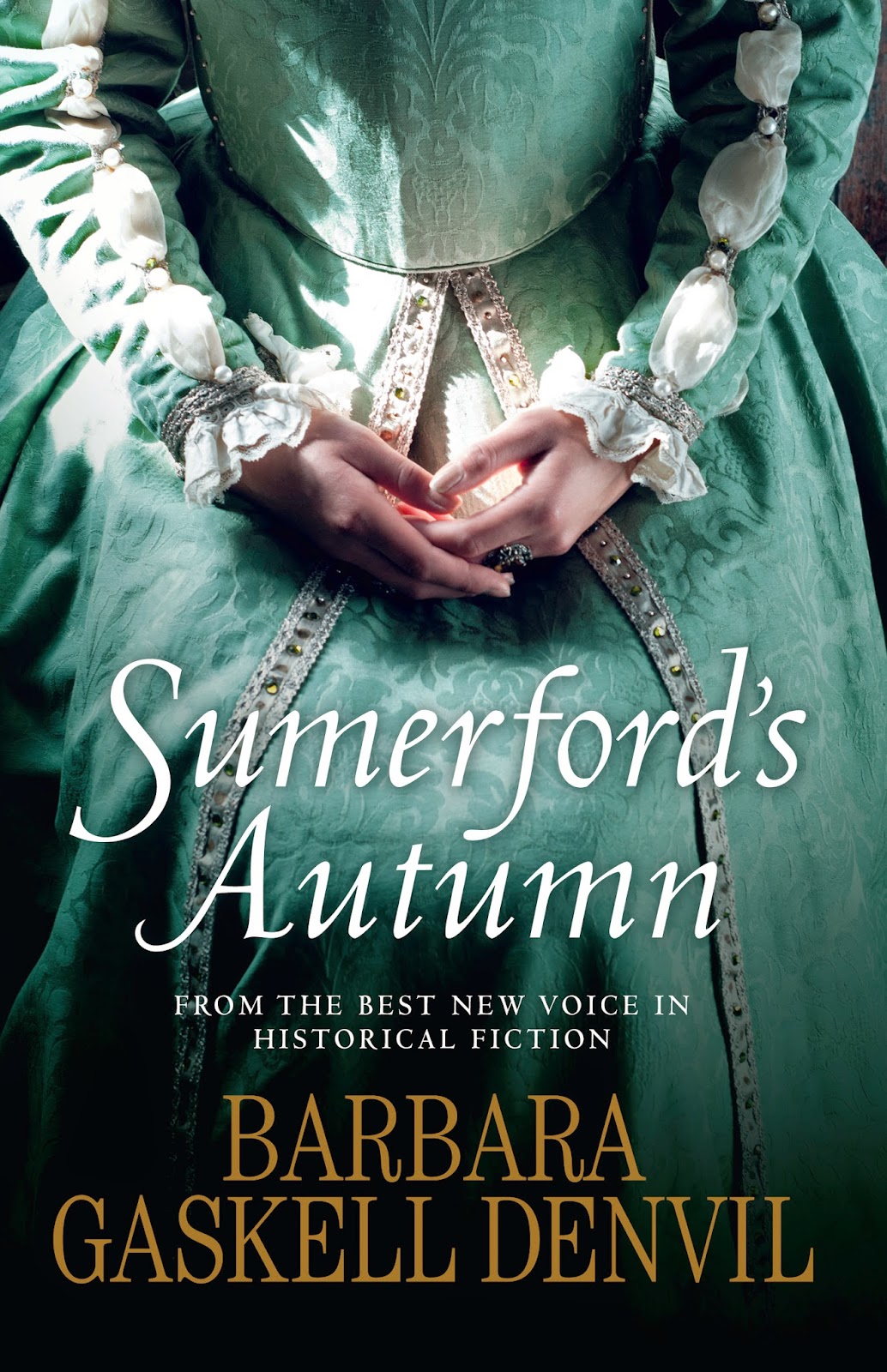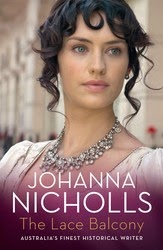Our guest post today is by Prue Batten, author of The Gisborne Trilogy who is appearing on
the The Path Less Travelled: Indie
Publishing and the Freedom to Explore on Sunday 22nd March 2015.
Prue is a former journalist who graduated with majors in
history and politics, and is also a farmer, dog owner, gardener, kayaker and
embroiderer.
Initially a writer of historical fantasy, in 2012 her third
novel, A Thousand Glass Flowers, won
a silver medal with the Readers’ Favorites USA Annual Book Awards. In the same year, her first historical fiction, Gisborne: Book of Pawns (Book One of The Gisborne Saga), was awarded an
honourable mention in the Golden Claddagh Book Awards USA. Set within the
turbulent twelfth century the same book received an honourable mention in the
RONE Awards USA in 2013.
Book of Pawns and Book of Knights (Books Two and Three of the saga)
have ranked in the Top 100 of biographical fiction on Amazon.co.uk since July
of 2013. Book of Kings, the third and
final novel in the trilogy, ranked in the Top 100 of biographical fiction in
the UK within its first 24 hours of publication and all three books continue to
rank unbroken. She is currently working on her new novel, Tobias, the story of a twelfth century minstrel and a broken life,
due to be released in 2015.
Here’s Prue’s post:
I have been asked to take part in a panel discussion on the The
Path Less Travelled: Indie Publishing and the Freedom to Explore in
celebration of the inaugural HNSA conference in Sydney in March 2015. Part of
this involvement is to guest post for the HNSA blog and I thought the best post
I could offer was indeed that path less travelled, and that the best people
from whom to gain information were those successful historical fiction writers
who have chosen to think outside that very traditional and narrow square.
It is that visionary, exciting, forward-thinking move that
has enabled good independent writers to prove beyond measure that they haven’t
needed the tick of approval from the mainstream system. Quite simply, they have
something credible, entertaining and MARKETABLE and which has resulted in
legions of readers who wait impatiently for the next book from those writers.
In my own case - being independent has indeed given me the
freedom to explore. In respect of The
Gisborne Trilogy it would never have seen the light of day if I had
submitted mainstream, because it is based on a character from history, perhaps
a legend (who knows) and one that is from an unfashionable timeframe (according
to mainstream) and is not the blood and guts style of historical fiction of
someone like Bernard Cornwell. But not only that, I took my protagonist far
from the traditional Robin Hood canon. I would have received a short rejection
slip, end of argument.
That said, the books have ranked unbroken in Amazon.co.uk’s Top 100 for biographical fiction for
over 16 months and with all seven of my books, both historic fantasy and
historic fiction, they trundle along quietly winning awards and rankings
without the massive publicity machine of the mainstream system behind them. To me,
that indicates that readers will seek out good content in the genre of their
choice. The publishing method means little.
In a more diverse sense, I think self-published authors are
unafraid to pursue the path less travelled because they have absolutely nothing
to lose. That IS the path less travelled. We can visit any timeframe
from ANY angle, ungoverned by an editor-in-chief or a marketing department.
The authors contributing to this post have always been
exceptionally professional in their approach. They employ editors,
beta-readers, cover designers and manage the marketing programme with
professional diligence which is why their readership grows exponentially.
From Alex Martin,
author of the most wonderful World War One Saga – Daffodils and its sequel, Peace
Lily:
‘Being 'out there' in
the public eye is both brave and foolhardy but readers are the best judges of
whether a book works. Agents and publishers, as far as I can see, want books
that sell. Indie writers have more freedom to write stories that move them,
where they can bare their souls, reach out to kindred spirits and touch hearts,
if they can, without trying to fit a particular genre, and it gives me immense
satisfaction to know that I have achieved that. It is here that genuine
exploration can occur, without the mercenary ties of making it pay (though very
welcome!) and I think it is here that future great writing will be found, not
exclusively of course, but the licence of independence gives creativity an
unfettered playground in which to chase that elusive muse… It is the future.’
From Steven M McKay
– high rating and best-selling author of a Robin Hood derivative, the superb Wolf’s Head series:
‘My debut novel, Wolf’s Head, was rejected by about a
dozen agents and would never have seen the light of day if it wasn’t for
self-publishing. Apparently there was no market for another re-telling of the
Robin Hood legend, but the fact it sold close to 20,000 copies within its first
year suggests readers thought otherwise...
As for the freedom
self-publishing brings? Well, I started off with a plan to write a trilogy, but
as I wrote the second book I realised I needed to add one more. I’m sure a
traditional mainstream publisher would either have wanted me to keep to the
original three-book plan, or, more than likely after the success of the first
book, demanded I string the series out over an unlimited number of novels,
milking the sales as much as possible regardless of how well the stories read.
I set my own deadlines for when I need to deliver a book, without someone
telling me what I need to do and when.’
I might add that Steven was invited by Amazon to be part of
their indie presentation at the London Book Fair and that he was one of the
first English indies to be invited by Audible.com to release his series in
audio.
From Lucinda Brant,
Australian author of Georgian romances, with a huge following in the UK and
Italy and who made the NY Times and USA Today Best Seller lists as an indie
author:
‘It has given me the
independence to stick by my convictions to write books set in the Georgian era
and know there is a viable market. I have been able to focus on the 18th
Century before the French Revolution, a period I love and know most about and
that is a wonderful freedom to have. I can write characters, situations and
outcomes the way I want them, not the way an editor tells me I must, or in a
way they think "will sell". I not only have the freedom to explore,
but also the freedom to direct all aspects of the process, from the creative
pen to publication. From writing what I want, to having what I want on the
covers, to employing translators, and choosing who will narrate my audiobooks…
It has also provided me with the financial freedom to "give up the day
job" to write full time and make a living. What could be better than that?’
Lucinda is a prime example of the quality of an indie author
– someone I consider a quiet achiever. She has won medals and awards in the
United States and her books rank in Top 100’s across the globe. Her Pinterest
account, a visual homage to the eighteenth century, has even secured media
attention in the USA.
From Gordon Doherty,
best selling author of the acclaimed Strategos
series:
‘Being indie can be an
advantage and offers significant creative freedom. Also, readers seek out good
stories rather than ones tagged as 'indie published' or 'mainstream published'.
From the mega-selling author of Marius’s Mules and The
Ottoman Cycle as well as standalone historical fantasy books, the
incomparable SJA Turney:
‘For me, I would say
that I began my publishing journey with both a Roman military novel and a
historical fantasy, so I was lucky to enter the scene already exploring more
than one literary path. However, had I been tied to a book deal with a
traditional publisher, I suspect I would have had to work exclusively on one or
both series from then on. Instead, I launched into a third series purely
because I read about an event that fascinated me and wrote three extra
as-yet-unpublished standalones because the mood took me. Just the other day I
shifted my anticipated novel plan up half a year simply because I had a
wonderful idea for a standalone book and wanted to write it. Without the
freedom self-publishing has granted me, I doubt these extra books - each of
which explores new periods, themes and styles - would ever have seen the light
of day.’
Simon has an immense global following and is often mentioned
in the same breath as Ben Kane, Douglas Jackson and others. He, too, left his
day job behind a long while ago and his success proves that in the mind of the
reader, the content is the important thing, NOT the publisher.
But perhaps the most powerful view is one from a former
Random House author with a plethora of titles to her credit and a longstanding
position as an elegant writer in the literary style. Ann Swinfen has leaped from strength to strength since becoming
indie and has the experience of both sides of the publishing world. And a
jaw-dropping experience it is too:
‘After years of being
told There is no market for historical
fiction, I turned my back on my agent and traditional publishing, and
joyfully embraced the indie world. Here I have set up my own imprint, Shakenoak
Press, and publish in both paperback and Kindle format. I am free to choose my
period and genre – the genre is literary historical and, so far, the periods
have been first, sixteenth and seventeenth century. I am in control of the
whole process, from cover design to pricing, and most recently have enjoyed the
wonderful experience of working with a distinguished actress, Serena
Scott-Thomas, on the audio book of The
Testament of Mariam. My books which were allowed to go out of print by
Random House are available once more, while my five historical novels are also
doing well. To say, as so many traditional publishers do, that There is no market for historical fiction
is a myth. There is a flourishing market for historical fiction of every type.’
I would like to finish this post by quoting Ann once more.
She spells out the position of we, the indie writers, very eloquently –
‘Once, it might have
been ‘the path less travelled’. Not any more. We have donned our travelling
cloaks, seized our staffs and our knapsacks, and we are out there, exploring
whole new worlds of historical fiction. We’re free, and we’re loving it!’
Many thanks to Prue for taking the time to garner the
opinions of so many fabulous indie and hybrid authors for this piece. Thanks
also to those very same authors for sharing their views. I found them
inspirational.
As a ‘hybrid’ author who has found freedom by diverging onto
the indie path, I am very much looking forward to chairing the Path Less Travelled panel with Prue and
GS Johnston. We’ll also be joined by Felicity Pulman who has dipped her toe
successfully into self-publishing at times. The world of publishing is changing
rapidly and the flexibility and freedom now afforded to authors is an exciting
one!
Elisabeth Storrs, author of the Tales of Ancient Rome series.
Book of Kings by Prue Batten
In this final book of The Gisborne Saga, Gisborne, spymaster and
valued knight of Richard Lionheart, is beguiled into a fierce duel in
which his wife and son are thrust round the board in a brutal game of
revenge.
Trust is the only commodity of any value at a time when life could end with the flight of an arrow, but can Gisborne be trusted enough and will his wife and son survive his obsession?
Prue Batten will be appearing at the 2015 HNSA Conference in the following
panel:
22 March 2015
12.15-1.15 pm Session Four
The Path Less Travelled: Indie Publishing and the Freedom to Explore12.15-1.15 pm Session Four
The self-publishing revolution has given authors the opportunity to reach readers directly and break through the constraints of writing about eras that are only deemed ‘marketable’. Elisabeth Storrs discusses how and why Prue Batten, GS Johnston and Felicity Pulman chose to go off the beaten track to find their readership.
For more information on all our
panels, please visit our site for programme
details. And you can buy your tickets here.
You can also sign up to the mailing list to be the first to keep up
to date with breaking news on the HNSA conference in 2015.
Please consider visiting us on Twitter and Facebook to help us spread the word!
Please consider visiting us on Twitter and Facebook to help us spread the word!
Here’s a tweet you might
like to use:
The Path Less Travelled by
@pruebatten on #indie publishing on #HNSA2015 blog @histnovsoc #histfic http://ow.ly/FISII
The freedom to explore
@pruebatten on #indie publishing on #HNSA2015 blog @histnovsoc #historical http://ow.ly/FISII
Register
now for the #HNSA2015 conference! Let’s make a noise about #historicalfiction http://ow.ly/E9RPZ
And please take a look at our FREE BOOK OFFERS!
The first 30 ticketholders to purchase a ‘Standard’ Whole Conference Ticket will receive a free copy of either The Lace Balcony by Johanna Nicholls, The King’s Shadow by Barbara Gaskell Denvil or The Island House by Posie Graeme-Evans.
All ticket holders will receive a Momentum ebook bundle in celebration of Felicity Pulman’s launch of Unholy Alliance.
The first 50 fully paid ticket holders will receive a copy of Sherryl Clark’s new book Do You Dare – Jimmy’s War in celebration of her launch.
The first 30 ticketholders to purchase a ‘Standard’ Whole Conference Ticket will receive a free copy of either The Lace Balcony by Johanna Nicholls, The King’s Shadow by Barbara Gaskell Denvil or The Island House by Posie Graeme-Evans.
All ticket holders will receive a Momentum ebook bundle in celebration of Felicity Pulman’s launch of Unholy Alliance.
The first 50 fully paid ticket holders will receive a copy of Sherryl Clark’s new book Do You Dare – Jimmy’s War in celebration of her launch.




















